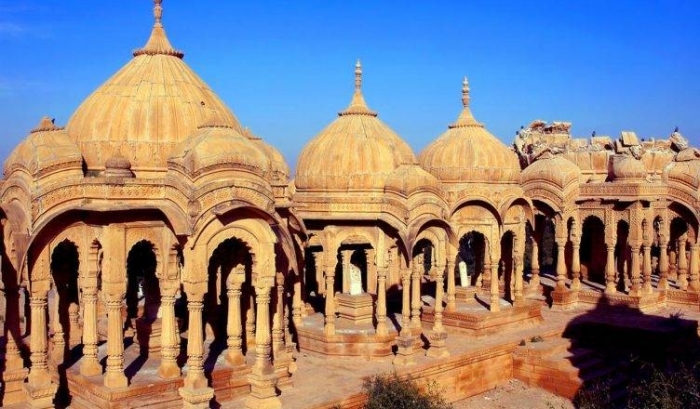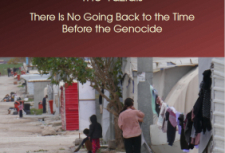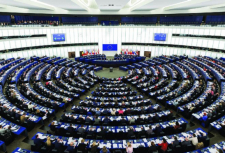Yezidis in ancient India, or Indians in ancient Mesopotamia?: Re-imagining Ancient Yezidi Origins

Mija Sanders
University of Arizona, Tucson, USA
Part 3
Campaign to Send Yezidis to India After the events of early 2014, Sri Sri Ravi Shankar, an Indian spiritual guru, initiated a humanitarian mission to Iraq (“Art of Living,” 2014). According to Seif, he was one of the first people to initiate help for Yezidis. “He collected a million dollars and took it to Iraq. I know they gave scholarships to Yezidi students who wanted to study in India.” He was also the first to invite the Baba Sheikh, the religious leader of the Yezidis, to India. Sri Sri encouraged the Indian government to give scholarships for Yezidis to study in India and resettle, as well as accept Yezidi refugees. Sri Sri considered Yezidis to be a minority like the Parsis who needed to be protected (Shankar, 2018). However, Yezidis did not settle in India. “I know many students who went to India to study, but they returned back. They did not want to relocate to India because they wanted to go to Europe” Seif told me. The Hindustan times (Narayan, 2014), admired the humanitarian mission. “As anyone who is plugged in to Indian social networks knows, there is much sympathy for the Yezidi community in the country especially from the Hindu right wing that sees, in its tragic fate, a mirroring of the wrongs perpetrated on Hindus in India by Islamic rule.” In recent years several Yezidi leaders made trips to India to enhance their relationship with Hindus and seek support for displaced Yezidis. Mirza Ismail10, an activist from Canada, had visited India in 2015 and in 2017. In a published article he called for India to represent Yezidis at the United Nations (Tare, 2018). Throughout the article Mirza took an anti-Muslim approach in order to attract the assistance of the Indian government, a strategy which he hoped would prove fruitful with the Hindutva allied government. In the article Mirza states,
The Yazidis are facing genocide from the Muslims. They kidnapped our women and children and killed our men. They destroyed our culture and identity when we opposed the conversion. The ISIS attacked us, collected our weapons. They are forcing their cultural identity on us. The ISIS has killed 7,450 Yazidi men and women. The ISIS does not kill Christians because they have support from the western countries. They kill anyone who refuses to convert.
He went onto describe how the Yezidis had been “backstabbed” by the Kurdish forces, and how the U.S. had refused to give Yezidis weapons to defend themselves. He said he wasn’t satisfied by the response of the international community. “The US, UK and other European countries did nothing. They support the Kurdish politically, logistically and internationally. The UN is at the mercy of the Muslim countries because they fund it from their oil money.” Mirza was referring to alliances with Saudi Arabia by Western countries. Finally the interviewer asked Mirza, “Do you think India would stay aloof because it fears to be called as anti-Muslim if she becomes your voice?” he replied, “India had swung into action in 1971 in Bangladesh because whatever happened there was anti-Hindu. India has intervened at that time.” By emphasizing India’s record of action in times when Hindus were threatened in war by a Muslim country, he hoped to gain the support of the Indian UN representative. He did not consider the potential repercussions of his anti-Muslim sentiment and the problems of using such sentiment by an Indian UN representative representing Yezidis. Due to his involvement with the Hindutva movement (through HSS and Sewa International and other Indian rightwing groups) he did not doubt that his framing of events as “Muslim” violence rather than “ISIS” violence would create the kinds of alliances Yezidis needed on an international stage.
Tags: #yazidisinfo #yezidi #ezidi #aboutezidi
Yezidis in ancient India, or Indians in ancient Mesopotamia?: Re-imagining Ancient Yezidi Origins

Mija Sanders
University of Arizona, Tucson, USA
Part 3
Campaign to Send Yezidis to India After the events of early 2014, Sri Sri Ravi Shankar, an Indian spiritual guru, initiated a humanitarian mission to Iraq (“Art of Living,” 2014). According to Seif, he was one of the first people to initiate help for Yezidis. “He collected a million dollars and took it to Iraq. I know they gave scholarships to Yezidi students who wanted to study in India.” He was also the first to invite the Baba Sheikh, the religious leader of the Yezidis, to India. Sri Sri encouraged the Indian government to give scholarships for Yezidis to study in India and resettle, as well as accept Yezidi refugees. Sri Sri considered Yezidis to be a minority like the Parsis who needed to be protected (Shankar, 2018). However, Yezidis did not settle in India. “I know many students who went to India to study, but they returned back. They did not want to relocate to India because they wanted to go to Europe” Seif told me. The Hindustan times (Narayan, 2014), admired the humanitarian mission. “As anyone who is plugged in to Indian social networks knows, there is much sympathy for the Yezidi community in the country especially from the Hindu right wing that sees, in its tragic fate, a mirroring of the wrongs perpetrated on Hindus in India by Islamic rule.” In recent years several Yezidi leaders made trips to India to enhance their relationship with Hindus and seek support for displaced Yezidis. Mirza Ismail10, an activist from Canada, had visited India in 2015 and in 2017. In a published article he called for India to represent Yezidis at the United Nations (Tare, 2018). Throughout the article Mirza took an anti-Muslim approach in order to attract the assistance of the Indian government, a strategy which he hoped would prove fruitful with the Hindutva allied government. In the article Mirza states,
The Yazidis are facing genocide from the Muslims. They kidnapped our women and children and killed our men. They destroyed our culture and identity when we opposed the conversion. The ISIS attacked us, collected our weapons. They are forcing their cultural identity on us. The ISIS has killed 7,450 Yazidi men and women. The ISIS does not kill Christians because they have support from the western countries. They kill anyone who refuses to convert.
He went onto describe how the Yezidis had been “backstabbed” by the Kurdish forces, and how the U.S. had refused to give Yezidis weapons to defend themselves. He said he wasn’t satisfied by the response of the international community. “The US, UK and other European countries did nothing. They support the Kurdish politically, logistically and internationally. The UN is at the mercy of the Muslim countries because they fund it from their oil money.” Mirza was referring to alliances with Saudi Arabia by Western countries. Finally the interviewer asked Mirza, “Do you think India would stay aloof because it fears to be called as anti-Muslim if she becomes your voice?” he replied, “India had swung into action in 1971 in Bangladesh because whatever happened there was anti-Hindu. India has intervened at that time.” By emphasizing India’s record of action in times when Hindus were threatened in war by a Muslim country, he hoped to gain the support of the Indian UN representative. He did not consider the potential repercussions of his anti-Muslim sentiment and the problems of using such sentiment by an Indian UN representative representing Yezidis. Due to his involvement with the Hindutva movement (through HSS and Sewa International and other Indian rightwing groups) he did not doubt that his framing of events as “Muslim” violence rather than “ISIS” violence would create the kinds of alliances Yezidis needed on an international stage.
Tags: #yazidisinfo #yezidi #ezidi #aboutezidi

























